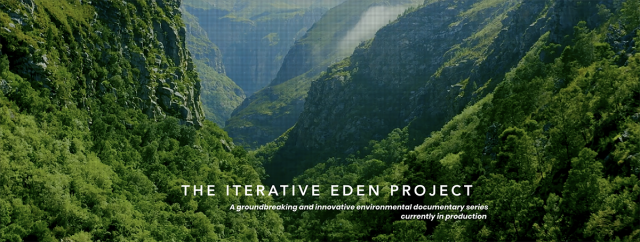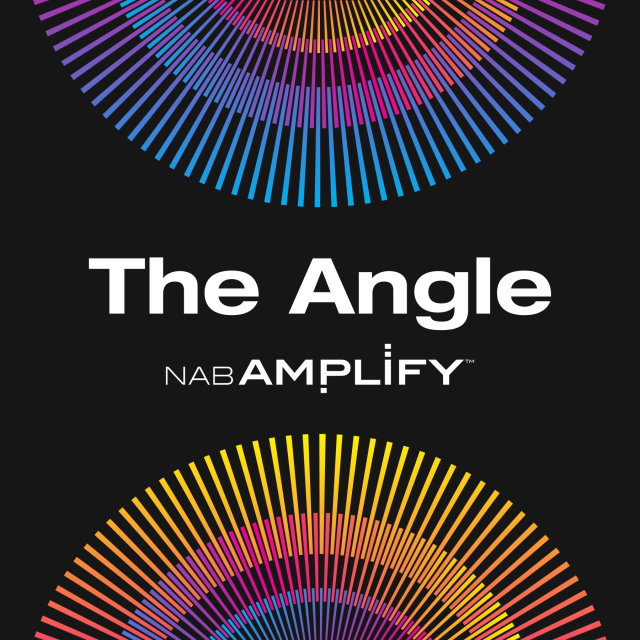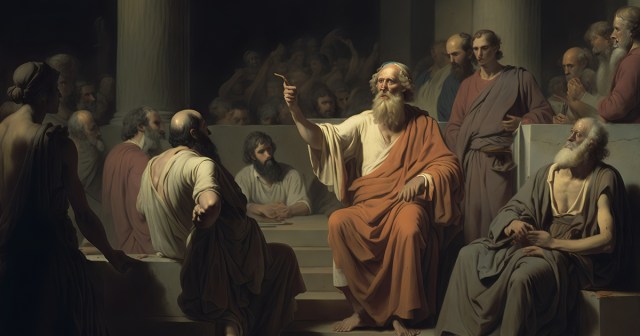
TL;DR
- Award-winning documentary producer and picture editor Megan Chao says the emergence of artificial intelligence has evolved at an accelerated pace, but the long term impacts have yet to be studied or seen.
- The ethics surrounding AI and its usage tolerances have challenged the basis of the work of documentary filmmakers as contributors to the historical record.
- Chao will be speaking at NAB Show as part of a panel discussion, “Unscripted Evolution: How AI is Reshaping Reality TV and Documentaries,” to explore where AI fits into documentary filmmaking.
Artificial intelligence is set to transform the Media & Entertainment industry. While generative video and voices will soon disrupt scripted film and television, documentaries will always be defined by their key elements — they’re real. But that doesn’t mean AI can’t help unscripted creators tell better stories, faster and cheaper.

Award-winning documentary producer and picture editor Megan Chao, VP of development and production at Birman Productions, Inc., has a successful track record of managing diverse creative teams and strategic partnerships, while spearheading projects from inception through show delivery. She is currently the showrunner for Eden, a global environmental sustainability documentary series, and is directing an untitled social documentary feature about the street harassment of women in public spaces.
Chao will be speaking at NAB Show as part of a panel discussion, “Unscripted Evolution: How AI is Reshaping Reality TV and Documentaries,” to explore where AI fits into documentary filmmaking. Moderated by StoryTech’s Lori H. Schwartz, the panel will also feature Andy Beach, chief technology officer for Media & Entertainment at Microsoft; Irad Eyal, founder of Quickture and Haymaker West; and Oz Krakowski, chief business development officer at Deepdub. The session, part of the Core Education Collection: Create Series, will be held at 11:30 AM on Monday, April 15 in room W225.
“Artificial intelligence has certainly been front and center for us working in various facets of media, and it has evolved at an accelerated pace,” says Chao. “The emergence of so many technologies, programs, and plug-ins have emerged to capitalize on streamlining and maximizing efficiencies in our workflows, but the long term impacts have yet to be studied or seen.”
AI Ethics for Documentary Filmmakers
For documentary filmmakers, “the ethics surrounding AI and its usage tolerances really challenges the basis of our work,” she continues. “We have an unspoken agreement with our audiences that the projects we create and publish have been vetted for accuracy, in facts and portrayals. We are contributors to historical record. When documentarians begin to engage generative AI in the creation of their projects, without appropriate disclosures or transparency about their practices, we start to erode at that audience trust. This becomes even more problematic when machines are learning from this published material, using inaccurate content to generate more content.”
Entertainment value is a key performance indicator, Chao says, but documentary and nonfiction program creators, programmers and distributors “have the added and ultimate responsibility for protecting the craft from this threat to our human record. If we think that social media is responsible for the proliferation of fake news, imagine how generated AI content will throw additional fuel on the fire. As generative AI becomes more sophisticated, it will become harder to distinguish fact from fiction.”
In addition, she says, the marketplace has been experiencing and an overall contraction, “leading to layoffs, smaller budgets for projects, leaner production and post production teams, and fewer opportunities. This has opened the door for the deployment of artificial intelligence by companies who are looking for cost savings and task efficiencies, and I think the implications have yet to be fully understood or clearly defined.”
While technological advancements should absolutely be celebrated and championed, Chao says, “greater emphasis needs to be placed on the value of human creators. People are the ultimate innovators, and we don’t want to squash that spirit or be suppressive in the ways that we work, especially if new, inspiring creations emerge.”
But that doesn’t mean that nonfiction and documentary producers shouldn’t consider how AI can help them, Chao cautions.
“There are so many points within the production and post production workflows where it’s eliminating mundane tasks, fixing errors from the field, or refining quality of output. But I think we are at a crossroads, where it becomes imperative for best practices and guardrails to be more clearly defined and understood in the nonfiction genre, and perhaps overall for the media industry,” she says.
“We need to put some of this social responsibility on the corporations that are developing the very tools that help us. Conversations need to go beyond profit sharing and responsibility to shareholders, and need to, instead, foster the respect and appreciation for the creators who ultimately come up with the award-winning programs that drive viewers to consuming our content. We need to continue putting pressure on entities working with us to uphold the ethics, morals and values behind our work.”
Lessons for Media Pros
Chao says she wishes that media pros could better understand “the hoops documentarians jump through for their craft,” adding, “We are scrappy, multi-crafted individuals who have chosen a career of passion and dedication.”
Documentarians, she says, are unusual from other filmmakers because they can spend many years on a single project. “But it’s a privilege to be able to tell the stories of people from all walks of life, past and present, to uncover new truths, break barriers, uplift communities and inspire social change through our work,” she continues.
“We don’t get the luxury of scripting what we capture out in the field or controlling the situations that contribute to our storytelling. The pathways we take and the business models we employ to tackle this kind of storytelling takes many shapes and forms, and the sacrifices for the love of the craft can sometimes come at a greater cost, personally and professionally, than for those working in other genres.”

Why subscribe to The Angle?
Exclusive Insights: Get editorial roundups of the cutting-edge content that matters most.
Behind-the-Scenes Access: Peek behind the curtain with in-depth Q&As featuring industry experts and thought leaders.
Unparalleled Access: NAB Amplify is your digital hub for technology, trends, and insights unavailable anywhere else.
Join a community of professionals who are as passionate about the future of film, television, and digital storytelling as you are. Subscribe to The Angle today!
At NAB Show, Chao encourages attendees to seek out information about cloud-based workflows, automation in field production, and automation in post-production.
“They should be finding out the ways that these technologies can help save them time and money, since time is money,” she says.
“For example, if footage from the field from halfway around the world can be safely transmitted back to producers and picture editors at home base, they can get a jump start on familiarizing themselves with the content to start post production before the field producers return. Or production and post production teams can collaborate from virtually anywhere with access to cloud-based technology. Or if travel budgets are tight, directors might be able to conduct interviews remotely in a way that still feels intimate and personal. So many solutions exist and NAB is certainly the place to experiment.”


